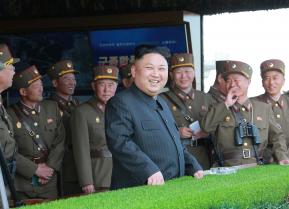Are We Ready If China Suddenly Collapsed?
China could be on the brink of collapse. Here's how Washington can leverage that to its advantage.
Fifth, the U.S. government needs to find a way to maintain communication with the Chinese people, even if Beijing starts cutting international linkages. The Great Firewall may not be impervious and it will be difficult to shut down the Chinese internet, but China, as proved by its recent interference in virtual private networks (VPNs), can make it extremely difficult to move communications and information via the Internet. Moving the American propaganda effort solely online without a failsafe would be foolhardy at best. If such a failsafe cannot be found with the capacity to elude censorship, then the next best thing would be retaining the capacity to broadcast radio into China in an emergency.
Finally, the kind of focused intelligence effort that this kind of contingency preparation will require may not be occurring. If the current U.S. intelligence collection and analysis apparatus—including the U.S. Foreign Service—is unsuited for these tasks, then some rethinking about how to build expertise, collect and process information and manage a political crisis inside China needs to occur. The question here is not necessarily the amount effort—as some claim U.S. intelligence needs—but focus and ensuring the continuous effort to sustain the aforementioned measures. And it will require the direct involvement of policy makers, because of their role in collecting some of the crucial personal information as well as the truism that policy making determines the limits of intelligence.
If Washington is concerned that the CCP is approaching its twilight, then asserting a moral stake in China’s development requires nothing less than a substantial effort to understand China’s political landscape beyond day-to-day policy-making concerns and to influence Chinese leaders before they pull the trigger on their citizens again. Without advance preparation, U.S. and other international leaders will find the prospects of an unstable China distressing, possibly with the view that it is “too big to fail.” They may even watch from the sidelines as in 1989, not knowing the best course of action or how to influence the decisions of Chinese leaders. This may not be wrong, but such a momentous decision should not be left to ignorance, preexisting mental images or scattered information collected as a crisis breaks.


